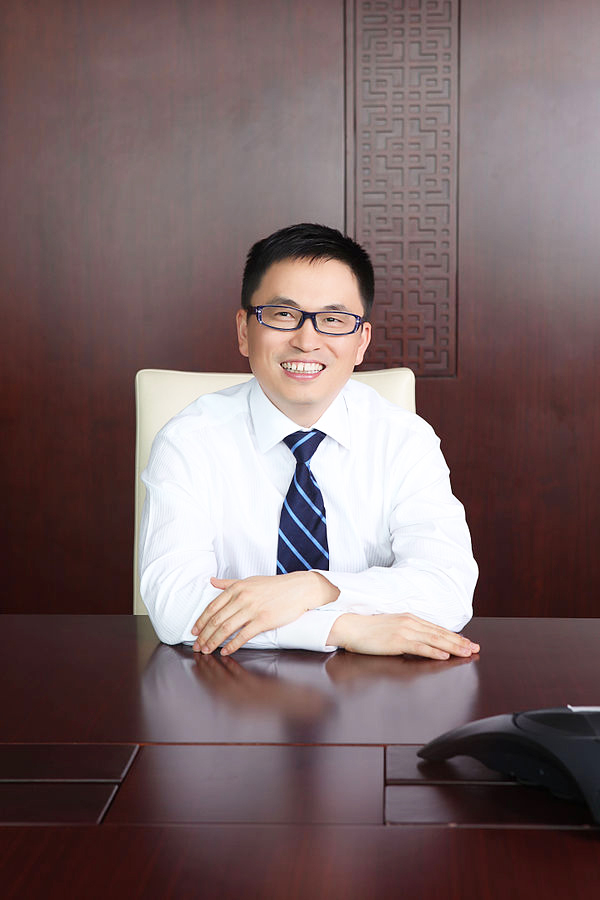
Wikimedia
Almost two decades ago, Lei Zhang GRD ’02 SOM ’02, unable to secure a job on Wall Street, interned at Yale Investments Office under Chief Investment Officer David Swensen. Now the chairman of Hillhouse Capital Group and one of China’s richest investors returns to New Haven four times a year as a trustee for the Yale Corporation.
But Zhang’s time at Yale is now intricately tied to his professional career. Hillhouse Capital — which Zhang founded in 2005 — was named after the street that runs through the heart of Yale’s campus. Three years after Zhang graduated in 2002, Yale became one of Hillhouse Capital’s earliest backers, pooling $20 million when Zhang was first looking for investments.
With just that $20 million, Zhang quickly became an early investor in companies such as Tencent and JD.com — “businesses that have shaken up traditional industries across China,” according to a New York Times profile from 2015.
“[At Yale,] I learned that investing is not about chasing the shortest path to returns, but about working with the best people to build long-term organizations that really create value,” Zhang said in an email to the News. “If you focus on creating sustainable long-term value, the returns will come.”
According to Zhang, his investment philosophy was largely shaped by his time working at the Yale Investments Office. In 2015, Zhang described his investment strategy as a combination of “Swensenism” — a term inspired by Swensen’s philosophy of “unconventional wisdom”— and traditional Chinese Buddhism.
Zhang’s partnership with Yale demonstrates how endowment offices and alumni of universities can benefit from maintaining mutual ties. According to Massachusetts Institute of Technology finance professor Andrew Lo ’81, Swensen is skilled at cultivating close relationships with Yale alumni and members of the Yale Investments Office, identifying skill and mentoring them both within and outside the office.
“I think it is an advantage because alumni are quite loyal to the University so they have additional motivation for participating in supporting the endowment activity,” Lo told the News in 2015. “We have seen this not only at Yale, but at other universities as well, where if you look at the investment committee of endowments, they are populated with alumni who are talented in the investment industry and are willing to give their services and expertise.”
Now a business mogul at the helm of a company that manages over $50 billion, Zhang serves as the vice chairman and trustee of the board at Renmin University of China, his other alma mater, and is a member of the China-United States Exchange Foundation and Hong Kong Financial Services Development Council. Zhang also established the Gaoli Academy at Renmin University to further liberal arts education at Chinese universities, per the Yale website. In January 2010, Zhang pledged $8,888,888 to the School of Management to aid the construction of the school’s new campus, provide support for international relations scholarship and fund China-related activities at Yale. At the time, Lei’s gift was the largest donation on record from a young Yale graduate and the largest gift the School of Management has ever received from its own alumni.
“Part of my delight at this gift comes from knowing that our new building will have names that represent the diversity of men and women who have been part of the Yale community,” former School of Management Dean Sharon Oster said at the time of the gift. “One of Lei Zhang’s explicit goals in making this gift public is to lead by example in his philanthropy … I have found our Chinese alumni at SOM to be among our most generous.”
According to University President Peter Salovey, Zhang has served on the board of Yale-NUS College, where he “shared keen insights as we have brought the liberal-arts model to Asia.” Zhang joined the Yale Corporation in June 2016.
“We are fortunate to have Lei on Yale’s board,” Salovey said in a statement to the News. “He is a supporter of higher education everywhere, recognizing the value universities bring to global society through research and education. … Lei brings important international perspectives to Yale’s board of trustees, and he is a wise advisor and fiduciary regarding all aspects of the university.”
With a business degree and a master’s in international relations, Zhang said the University “has had a tremendous influence on [his] perspective and is a reminder that the true basis for understanding between countries begins at a human and personal level.” Yale’s long history of building cross-cultural and educational programs — from welcoming Yung Wing as America’s first Chinese student to offering numerous Yale-China programs today — serves as a model for universities throughout America, Zhang added.
When asked about his role in bringing liberal arts education to Asia, Zhang emphasized that while science and technology are moving forward at a tremendous pace, the humanities will “help solve the greatest challenges we have.”
“[The humanities] give us a foundation for empathy,” Zhang explained. “I was fortunate to get a wonderful education at Renmin and at Yale, and I believe that technical skills have the most value when they are rooted in a humanistic context.”
Zhang added that recent faculty excellence initiatives would strengthen Yale’s science, engineering and liberal arts departments. In 2015, the University unveiled the largest faculty diversity initiative in its history and pledged $50 million. Last fall, Salovey announced the allocation of another $26 million for the purposes of faculty salary adjustments and recruitment. Funded by a large anonymous gift early 2018, the 2018 faculty excellence initiative demonstrates a sustained effort to invest in the University’ faculty members, Zhang said.
Hillhouse Capital invests in financial, consumer and technology services as well as healthcare sectors.
Serena Cho | serena.cho@yale.edu







